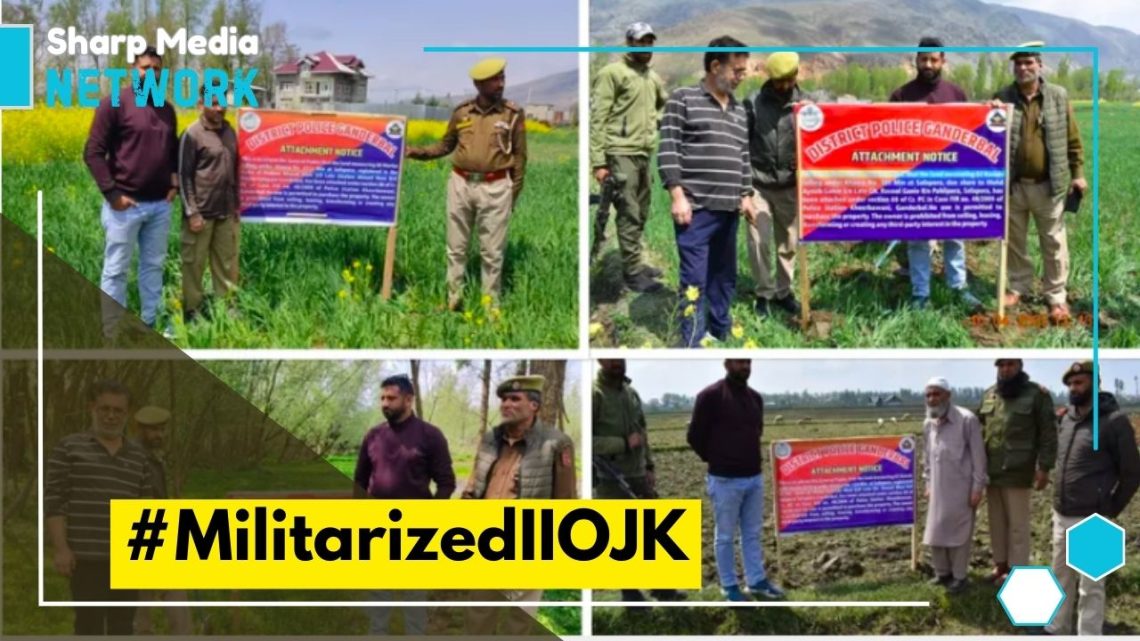
More Land Seized, Government Workers Fired Amid Crackdown in IIOJK
April 12, 2025In yet another show of force in IIOJK, authorities have escalated their clampdown by confiscating land and terminating government workers—fueling fears of deepening repression and demographic manipulation.
Continuing its heavy-handed policies in Indian Illegally Occupied Jammu and Kashmir (IIOJK), the New Delhi-imposed administration has confiscated more property and dismissed additional Kashmiri public servants from government positions.
Under direct orders from Lieutenant Governor Manoj Sinha, police recently seized 9 kanals and 7 marlas of agricultural land in Ganderbal district. The land, worth an estimated ₹3.47 crore, belonged to three local residents: Firdous Ahmad Wani from Treesa Safapora, Mohammad Ramzan Butt from Batpora Safapora, and Mohammad Ayoub Ganie from Pahlipora Safapora.
The property was seized under the controversial Unlawful Activities (Prevention) Act (UAPA), a law that human rights groups have repeatedly criticized for being weaponized to suppress dissent in Kashmir. These legal tools, they argue, are increasingly used to target civilians with no due legal process.
In a parallel action, the administration also terminated two Kashmiri Muslim government employees using Article 311 of the Indian Constitution, which allows dismissal without a formal trial or the right to appeal.
Basharat Ahmad Mir, an Assistant Wireless Operator in the police department from Srinagar, and Ishtiyak Ahmad Malik, a Senior Assistant in the Public Works Department from Islamabad district, were accused of participating in “anti-India” and pro-freedom activities. Such allegations are frequently made without concrete evidence or legal proceedings, sparking criticism from legal experts and activists.
Since the abrogation of Jammu and Kashmir’s special status in August 2019, the BJP-led government has been accused of pushing policies aimed at altering the region’s demographic and political makeup. Numerous properties—ranging from homes to shops and farmland—have been confiscated. At the same time, dozens of government employees, primarily from the local Muslim population, have been fired.
Critics view these actions as part of a broader effort to economically disenfranchise Kashmiris and facilitate the settlement of outsiders in the region. By removing Kashmiris from state employment and seizing their land, the government appears to be laying the groundwork for a demographic transformation designed to dilute the local population’s identity and resistance.
Rights organizations and political analysts warn that such measures not only violate individual rights but also heighten tensions in an already fragile region. The growing use of UAPA and Article 311 against civilians and employees alike points to a concerning erosion of democratic norms in the territory.

